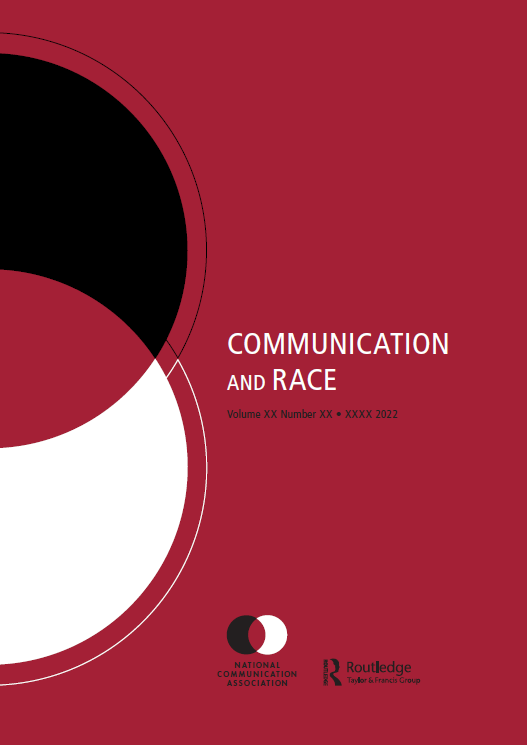October 12, 2022
“NCA is my intellectual home,” says NCA member Armond Towns.
He started attending NCA meetings in 2008 as a graduate student, participating in service projects. Today, as an Associate Professor of Communication and Media Studies at Carleton University in Ottawa, Ontario, Towns is taking on one of the most prominent roles within NCA – the co-founding editor of a new journal.
In Spring 2024, NCA will debut Communication and Race – its first new journal in nearly 20 years.
“This is an area that’s really growing and very popular in many people’s studies,” says Towns. “We are creating a foundational space to say what we mean theoretically when we talk about the topic of Communication and race.”

Towns, the author of the book On Black Media Philosophy, has focused on the historical relationship between Black Studies, race, and media and Communication studies in his academic career. His book delves deeply into the role media technologies have played in defining humanity and the outsized influence of western Europe and North America in crafting that image. “Black people have created alternative understandings of what it means to be human,” says Towns in talking about the need for other conceptions of humanity in the study of Communication.
The new NCA journal will serve as a place for both humanistic approaches to Communication and race as well as more social scientific studies of inequality. With growing numbers of people of color gaining graduate degrees and entering the field of Communication, Towns says this was the ideal time to launch a journal around this topic.
“I don’t know if 10 years ago would have been a great time for this journal,” adds Towns, reflecting on some of the barriers and opportunities that influenced national discussions on race over the past 70 years. Towns says the 1980’s and 1990’s marked a turning point, coinciding with the entrance of more scholars of color into the field.
Towns is quick to point out that launching a journal on this topic was not his achievement alone. “As an editor, I’m writing on the shoulders of giants,” he says. “There has been a long history of scholars, like the founders of the NCA’s Black Caucus, who have laid the foundation for a topic like this to be studied.”
Some of those giants joined Towns in crafting the proposal for the journal Communication and Race and securing its approval. They include Dr. Kundai Chirindo (Lewis & Clark University), Dr. Lisa Flores (University of Colorado Boulder), Dr. Ronald Jackson, II (University of Cincinnati), Dr. Thomas Nakayama (Northeastern University), Dr. Tiara Na’puti (University of California-Irvine), Dr. Kent Ono (University of Utah), and Dr. Myra Washington (University of Utah).
The journal’s launch coincides with NCA’s ongoing transformation into an organization that is bringing greater inclusion, diversity, equity, and access into its programming and initiatives. A national task force recently drafted a strategic plan focused on integrating these values across all aspects of NCA’s work. The NCA Legislative Assembly will vote on this plan during its business meeting at the 108th Annual Convention. This is also consistent with the convention’s theme of Honoring PLACE: People, Liberation, Advocacy, Community, and Environment.
Towns believes that NCA has an important role to play in advancing these ideals. “As an academic institution, NCA has to think about social change and social justice through its own lens. We have to think about what as an organization are the material things we can do to address questions about social inequality,” Towns says.
He also recognizes the influential role that NCA plays in the Communication field. “A journal under NCA holds weight for a lot of graduate schools and tenure applications. This new journal can create more opportunities for scholars of color while also creating a hub for us all to find research on the topic of race in the field.”
When asked about whether a journal focused on race might be deemed controversial by some members, Towns says race is already being discussed within and outside the field of Communication. He wants to debunk notions that discussing race is in itself racism.
“Even when race is not discussed, if you look historically at the fingerprints of our field’s work, race is there,” Towns explains. “We don’t have to make it up.” He’d like Communication and Race to be a platform for people from different points of view to engage in discourse around this topic, serving as a hub to “create the greatest forms of knowledge” for a better humanity.
An online portal will be created this fall to begin accepting submissions for the journal’s inaugural issue in Spring 2024.
